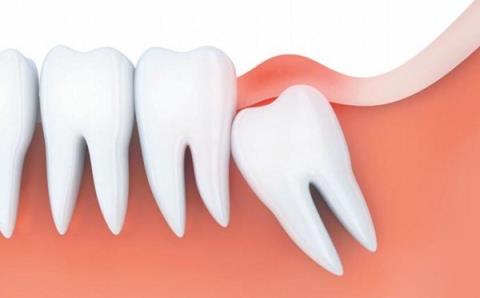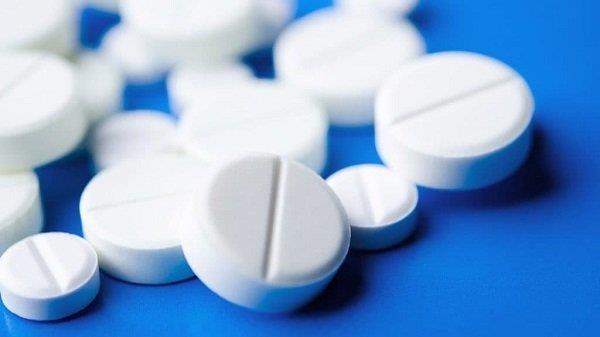Dry socket: What you need to know

Dry socket is one of the conditions that need to be treated urgently in dentistry. A common situation is a few days after wisdom tooth extraction. The patient returned complaining of severe pain and bad breath. The pain usually doesn't go away with pain relievers. And the bad smell causes discomfort, making the patient less confident in communication. This is one of the complications after tooth extraction. Let's join SignsSymptomsList to learn about the causes, treatment and prevention of diseases.
content
- 1. What is dry socket?
- 2. Who is susceptible to the disease?
- 3. Diagnosis of dry socket
- 4. How to treat dry socket?
- 5. Prevention of dry socket inflammation
1. What is dry socket?
Dry socket (alveolar osteomyelitis) is a painful condition that occurs after tooth extraction. Especially the teeth that are difficult to extract, traumatize the surrounding tissue during extraction. Extracted tooth socket exposes grayish-white bone, due to incomplete blood clot formation or premature dissolution. The disease usually appears 2 to 4 days after tooth extraction.
>>> See more: 21 common dental problems and diseases
2. Who is susceptible to the disease?
The rate of dry socket after tooth extraction is about 3-5%. A small number, but this is a very uncomfortable complication. Although not uncommon, the exact cause is currently unknown. However, there are several risk factors associated with the disease. If you have these factors, you are more likely to get sick:
- Gender: Females have a higher incidence than males. This is explained by the change in estrogen in women.
- Mandibular wisdom teeth: The rate of disease after extraction of lower wisdom teeth ranges from 20 to 30%. The reason is that wisdom teeth often get stuck, difficult to extract, often require minor surgery.
- Young people: The most common age is 20-30 years old. This is also the time when wisdom teeth erupt and need to be extracted when they are stuck or misaligned.
- Oral contraceptives : Causes estrogen disturbance, affecting blood clot formation.
- Coughing, gargling too hard: Causing blood clots to slough off.
- Infections: Periodontitis, gingivitis, local infections in the mouth increase risk factors.
>>> See more: 3 safe and effective ways to treat periodontitis
Other factors: Poor oral hygiene, smoking, diabetes...

Extraction of lower wisdom teeth has a high risk of dry socket.
3. Diagnosis of dry socket
Your doctor will diagnose the disease through your answers and symptoms during physical examination and X-rays. Patients often feel severe pain a few days after tooth extraction. Although I took pain relievers, there was no significant improvement. When observed in the mouth, the tooth extraction socket exposes the bone, and the surrounding gums are slightly red. Especially bad breath.
Some other conditions also cause similar symptoms: Extracted roots, foreign bodies, tartar falling into the extraction socket... Therefore, X-ray films need to be taken to rule out the above conditions.

X-ray films are taken to aid in the diagnosis.
4. How to treat dry socket?
When there are signs of dry socket, you should see your doctor for proper treatment and effective home care instructions.
After making a diagnosis, the doctor will wash the extraction site. A sterile gauze pad, impregnated with an analgesic and antibacterial agent is usually placed. Gauze should be changed every day. Symptoms of pain and bad breath will be significantly reduced after taking the above measures. Prescriptions help increase the effectiveness of treatment and prevent infection. Prescriptions usually include antibiotics, pain relievers, and mouthwashes. Duration of use of the drug lasts from a week to 10 days. You should still see your doctor on time, even if your symptoms are significantly reduced or gone.

Use prescription medication.
Your doctor will guide you through some measures you can take at home. You need to adhere to the following tips:
- Take the medicine exactly as prescribed.
- Rinse mouth gently with prescribed mouthwash or physiological saline.
- Do not smoke, at least until the pain disappears.
- Keep oral hygiene clean, brush teeth gently around the extraction socket.
Avoid coughing, strong spitting, causing the gauze to detach from the inflamed bone.
5. Prevention of dry socket inflammation
You need to be prepared and plan for the extraction. This helps to avoid risk factors for alveolar osteomyelitis. Some measures you should take are:
- Take tartar before tooth extraction: Cleaning the mouth helps limit factors associated with infection.
- Gargle before tooth extraction with an antibacterial mouthwash.
>>> See more: Mouthwash: What you need to know to use effectively
- Plan to have your teeth extracted in the middle of your menstrual cycle.
- If taking oral contraceptives every day, the tooth should be extracted on a day without estrogen supplementation. (Usually falls on the 23rd - 28th of the menstrual cycle).

Use mouthwash before tooth extraction.
After tooth extraction, it is very important to follow the advice of the doctor to prevent disease. You should also follow some of these guidelines:
- Do not smoke after tooth extraction, at least until the extraction socket has healed.
- Avoid eating and drinking very hot food for the first 2 days after tooth extraction.
- Do not drink water through a straw, spit vigorously.
- You should rest, avoid vigorous physical activities, which can dislodge blood clots.

Get regular dental check-ups to keep your teeth healthy
In summary, dry socket is a painful complication after tooth extraction, especially the lower wisdom teeth. The disease usually appears 2 to 4 days after tooth extraction. Severe alveolar pain, accompanied by bad breath are typical symptoms of the disease. You need to plan for tooth extraction to prevent disease. This will help rule out some risk factors. Maintain good oral hygiene, visit your dentist regularly to help protect your teeth and prevent tooth extraction. Wish you always keep beautiful teeth and good oral health!
Doctor Nguyen Thien Phuoc